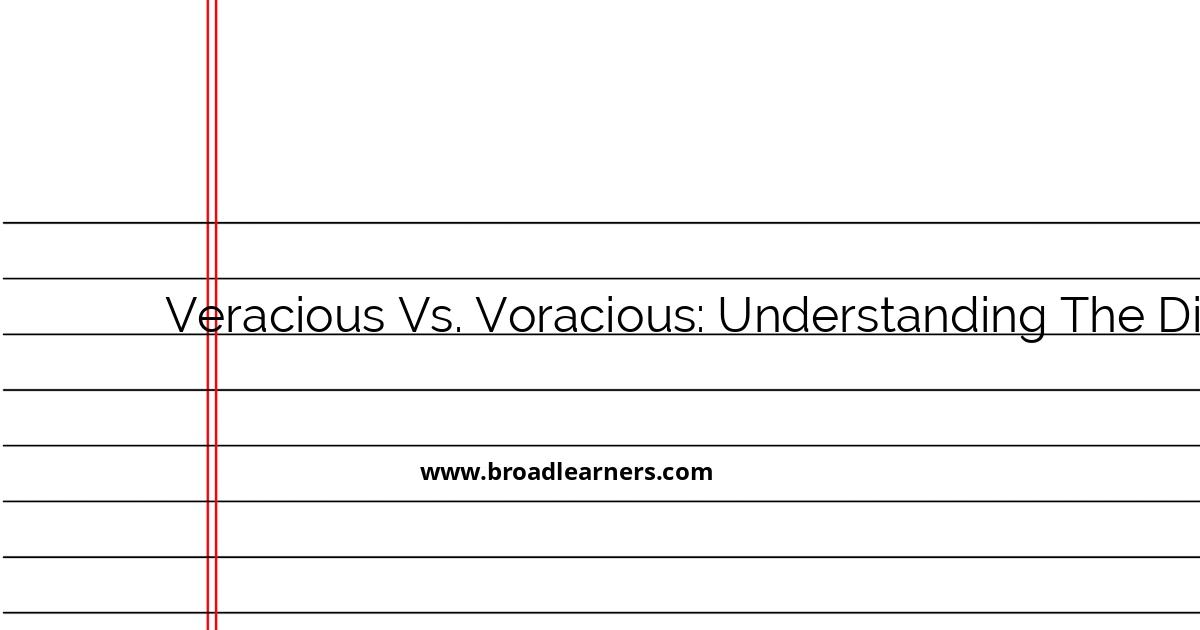The English language often presents us with words that sound similar but have distinct meanings, which can lead to confusion. Two such words are “veracious” and “voracious.” Both words have Latin roots and have found their places in the English lexicon. They are often mistakenly interchanged due to their phonetic resemblance, yet they carry very different meanings. Let’s delve into each word to understand their definitions and usage, along with examples, so you can use them confidently in your writing and speech.
- Veracious
This adjective derives from the Latin word “verax,” which means “truthful.” “Veracious” is used to describe someone who speaks the truth or is habitually honest. It can also describe information or statements that are accurate or true.
Example:
The journalist was known for her veracious reporting, always ensuring that her news articles were based on verified facts.
In this example, “veracious” highlights the journalist's commitment to truthfulness and accuracy in her work.
- Voracious
In contrast, “voracious” comes from the Latin word “vorax,” meaning “devouring” or “greedy.” This adjective describes someone who has an eager approach to consuming something, typically food, and can also pertain to absorbing information or knowledge with great enthusiasm.
Example:
Ever since childhood, he was a voracious reader, devouring books of every genre with an insatiable appetite for stories.
Here, “voracious” indicates an intense eagerness and enthusiasm in reading a large quantity of books.
Now, let's explore some alternative sentences using these words to reinforce our understanding:
1. Veracious
- The witness gave a veracious account of the incident, ensuring that the jury had all the accurate details.
- The scientist’s veracious data collected during the experiment were essential in proving the new theory.
These examples showcase the word “veracious” in contexts where truthfulness and accuracy are of paramount importance.
2. Voracious
- She had a voracious appetite after the hike, consuming a hearty meal to satisfy her hunger.
- His voracious curiosity led him to explore numerous subjects, constantly seeking knowledge.
In these scenarios, “voracious” is used to express a strong desire or enthusiasm, whether for food or knowledge.
By understanding these definitions and examples, you can remember that “veracious” relates to truth, and “voracious” denotes an intense eagerness or appetite. Using these words accurately in your communication can greatly enhance your expression and clarity.

Did I miss anything? Respond below